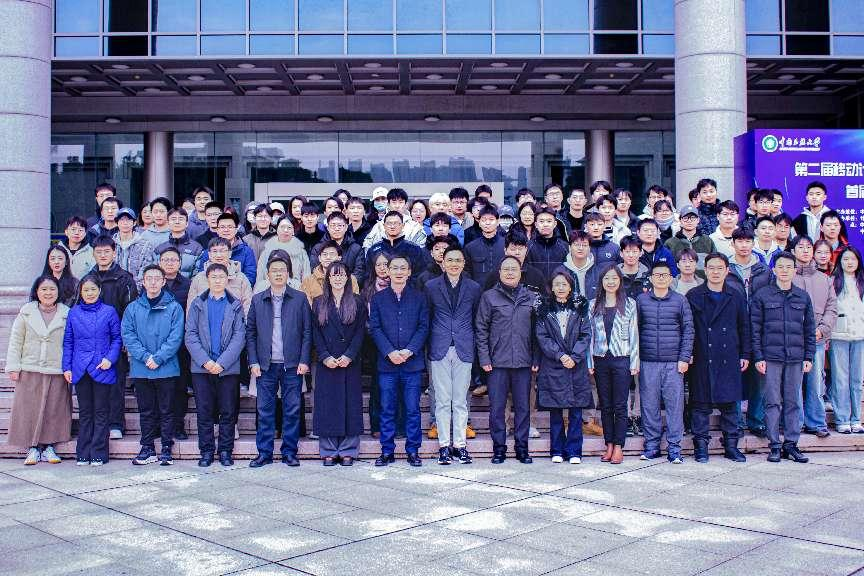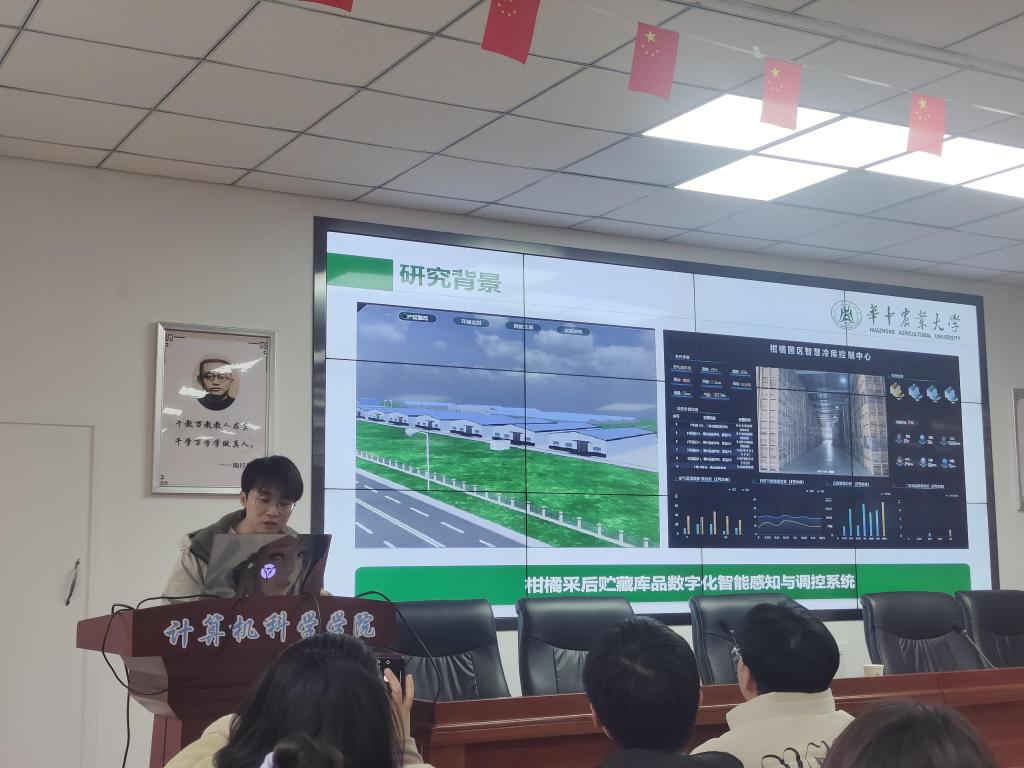Our University Hosted the 2nd Symposium on Mobile Computing, Algorithms, and Network Economics and the 1st Graduate Academic Forum in Information Science
Author:Hong Yuxin Edit:Lai Pan Uploader:Zhu Menghuan Reviewer:Ke Zuntao Published:2024-12-13 Views:
On December 12, the 2nd Symposium on Mobile Computing, Algorithms, and Network Economics, together with the 1st Graduate Academic Forum in Information Science, was held at our university’s Academic Communication Center. The event was organized by the School of Computer Science, the Office of Research and Development (Technology Transfer Center), and the Graduate School. Its goal was to establish a platform for exchanging innovative achievements between our university and other domestic and international universities and research institutions. The symposium aims to advance interdisciplinary integration in the context of artificial intelligence and contribute to the development of an innovative and technologically advanced nation.

Group photo of attending experts and scholars (provided by the School of Computer Science)
During the opening ceremony, Professor Fang Debin, a member of the university’s Party Committee and Vice President, delivered a welcome speech. He highlighted the university’s educational philosophy and recent progress in building its information science discipline. He expressed hope that the forum would foster deep communications in artificial intelligence among experts and scholars, strengthen consensus, seize the development opportunities, and address challenges collectively, propelling intelligent technologies and applications toward a brighter future.
Morning Session: Academic Reports
The morning session featured academic presentations by five distinguished scholars from domestic and international institutions, including the Singapore University of Technology and Design (SUTD), Sun Yat-sen University (SYSU), Nanjing University of Science and -Technology (NJUST), Guangdong University of Technology (GDUT), and Beijing PARATERA Tech Corp., Ltd.
Professor Duan Lingjie from the SUTD delivered a report titled Human-in-the-loop Learning for Feedback and Servicing. His presentation explored strategies for analyzing biased comments on online review platforms and large language models (LLMs), aiming to extract underlying truths or refine the models.
Professor Wang Zhe from NJUST presented Dynamic Resource Optimization and Game Theory in Edge Intelligent Networks. He discussed critical issues in edge network optimization, including collaborative optimization and crowd-sourced game theory, leveraging reinforcement learning and game theory. Professor Wang Xuehe from SYSU introduced a federated learning algorithm in her report, Fast Federated Learning Algorithms in Heterogeneous Networks. She presented an entropy-based adaptive federated learning algorithm to mitigate parameter biases in heterogeneous clients and accelerate convergence. Professor Wang Feng from GDUT gave a report on RIS-assisted Integrated Sensing and Communication Beamforming Design, discussing key technologies and trends in multi-antenna modeling and joint beamforming optimization for reconfigurable intelligent surfaces (RIS)-assisted systems. Mr. Zhang Yuchao, AI Cloud Services Director at Beijing PARATERA Tech Corp., Ltd., delivered a report titled GPU Selection and Performance Optimization Based on AI Application Characteristics. He proposed GPU performance optimization solutions to address challenges such as complex server types, fragmented resource management, and unmet large-scale computing needs.
Afternoon Session: Graduate Academic Forum
The afternoon session featured academic presentations by ten outstanding graduate students. Participants included students from our university’s School of Computer Science, School of Biomedical Engineering, School of Electronic Information Engineering, and School of Mathematics and Statistics, as well as the College of Informatics at Huazhong Agricultural University (HZAU).

Graduate Academic Forum (provided by the School of Computer Science)
The symposium successfully fostered academic communication and highlighted the university’s commitment to advancing research in mobile computing, algorithms, and network economics while promoting interdisciplinary collaboration in information science.